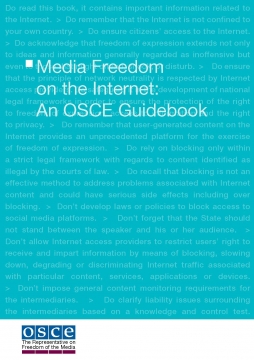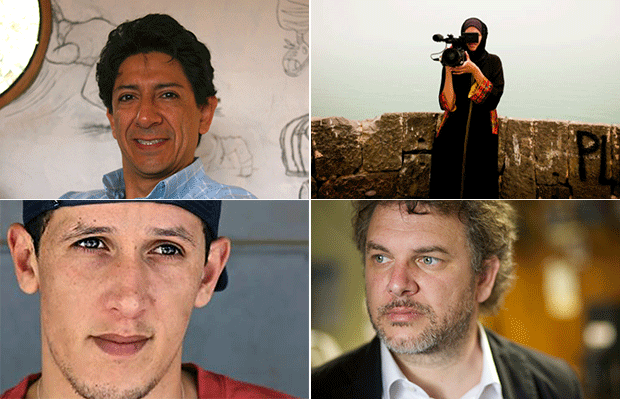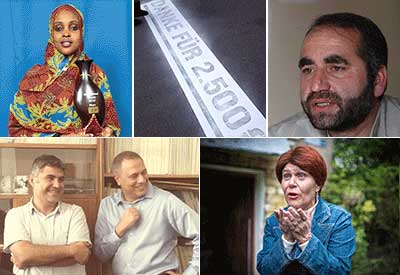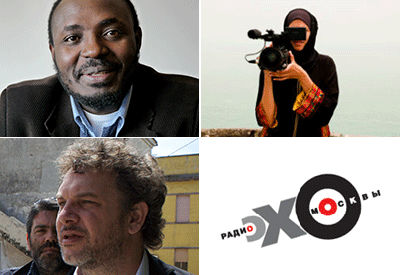Index relies entirely on the support of donors and readers to do its work.
Help us keep amplifying censored voices today.
[vc_row][vc_column][vc_column_text]

CREDIT: ra2studio / Shutterstock
Securing your connection
Activists in countries where the web is heavily censored and internet traffic is closely monitored know that using a virtual private network or VPN is essential for remaining invisible.
A VPN is like a pair of curtains on a house: people know you are in but cannot see what you are doing. This is achieved by creating an encrypted tunnel via a private host, often in another country, through which your internet data flows. This means that anyone monitoring web traffic to find out persons of interest is unable to do so. However, the very fact that you are using a VPN may raise eyebrows.
An increasing number of VPNs promise truly anonymous access and do not log any of your activity, such as ExpressVPN and Anonymizer. However, access to some VPN providers is blocked in some countries and their accessibility is always changeable.
Know your onions
One of the internet’s strengths is also one of its weaknesses, at least as far as privacy is concerned. Traffic passes over the internet in data packets, each of which may take a different route between sender and recipient, hopping between computer nodes along the way. This makes the network resilient to physical attack – since there is no fixed connection between the endpoints – but also helps to identify the sender. Packets contain information on both the sender’s and recipient’s IP address so if you need anonymity, this is a fatal flaw.
“Onion” routing offers more privacy. In this, data packets are wrapped in layers of encryption, similar to the layers of an onion. At each node, a layer of encryption is removed, revealing where the packet is to go next, the benefit being that the node only knows the address details of the preceding and succeeding nodes and not the entire chain.
Using onion routing is not as complicated as it may sound. In the mid-1990s, US naval researchers created a browser called TOR, short for The Onion Routing project, based on the concept and offered it to anyone under a free licence.
Accessing the dark web with the Tor browser is a powerful method of hiding identity but is not foolproof. There are a number of documented techniques for exploiting weaknesses and some people believe that some security agencies use these to monitor traffic.
Put the trackers off your scent
Every time you visit a popular website, traces of your activity are carefully collected and sifted, often by snippets of code that come from other parts of the web. A browser add-on called Ghostery (ghostery.com) can show you just how prevalent this is. Firing up Ghostery on a recent visit to The Los Angeles Times website turned up 102 snippets of code designed to track web activity, ranging from well-known names such as Facebook and Google but also lesser known names such as Audience Science and Criteo.
While some of this tracking has legitimate uses, such as to personalise what you see on a site or to tailor the ads that appear, some trackers, particularly in countries where there are lax or no rules about such things, are working hard to identify you.
The problem is that trackers can work out who you are by jigsaw identification. Imagine you have visited a few places on the web, including reading an online article in a banned publication and then flicking through a controversial discussion forum. A third-party tracker used for serving ads can now learn about this behaviour. If you then subsequently log into another site, such as a social network, that includes your identity, this information can suddenly be linked together. Open-source browser extensions such as Disconnect (disconnect.me) offer a way to disable such trackers.
Use the secure web
A growing number of popular websites force visitors to connect to them securely. You can tell which ones because their addresses begin with https rather than http. Using https means that the website you are visiting will be authenticated and that your communications with the site are encrypted, stopping so-called man-in-the-middle attacks – where a malicious person sits between two people who believe they are communicating directly with each other and alters what is being communicated. Google, as well as using https for both Gmail and search, is also encouraging other websites to adopt it by boosting such sites up the search rankings.
Rather than remembering to check you are using https all the time, some people employ a browser extension created by the Electronic Frontier Foundation and the Tor Project called HTTPS Everywhere to do it for them. It is available for Chrome, Firefox and Opera and forces browsers to user https versions of sites where available.
Hide your fingerprints
Traditional identification methods on the web rely on things like IP addresses and cookies, but some organisations employ far more sophisticated techniques, such as browser fingerprinting. When you visit a site, the browser may share information on your default language and any add-ons and fonts you have installed. This may sound innocuous, but this combination of settings may be unique to you and, while not letting others know who you are, can be used to associate your web history with your browser’s fingerprint. You can see how poorly you are protected by visiting panopticlick.eff.org.
One way to try to avoid this is to use a commonly used browser set-up, such as Chrome running on Windows 10 and only common add-ins activated and the default range of fonts. Turning off Javascript can also help but also makes many sites unusable. You can also install the EFF’s Privacy Badger browser add-on to thwart invisible trackers.
Mark Frary is a journalist and co-author of You Call This The Future?: The Greatest Inventions Sci-Fi Imagined and Science Promised (Chicago Review Press, 2008)
This article is from the Autumn issue of Index on Censorship Magazine. You can order your copy here, or take out a digital subscription via Exact Editions. Copies are also available at the BFI, the Serpentine Gallery, MagCulture, (London), News from Nowhere (Liverpool), Home (Manchester), Calton Books (Glasgow) and on Amazon. Each magazine sale helps Index on Censorship continue its fight for free expression worldwide.[/vc_column_text][/vc_column][/vc_row][vc_row][vc_column][vc_custom_heading text=”From the Archives”][vc_row_inner][vc_column_inner width=”1/3″][vc_single_image image=”90642″ img_size=”213×289″ alignment=”center” onclick=”custom_link” link=”http://journals.sagepub.com/doi/pdf/10.1080/03064220008536724″][vc_custom_heading text=”Anonymous now” font_container=”tag:p|font_size:24|text_align:left” link=”url:http%3A%2F%2Fjournals.sagepub.com%2Fdoi%2Fpdf%2F10.1080%2F03064220008536724|||”][vc_column_text]
May 2000
Surfing through cyberspace leaves a trail of clues to your identity. Online privacy can be had but it doesn’t come easy, reports Yaman Akdeniz.
[/vc_column_text][/vc_column_inner][vc_column_inner width=”1/3″][vc_single_image image=”89179″ img_size=”213×289″ alignment=”center” onclick=”custom_link” link=”http://journals.sagepub.com/doi/pdf/10.1080/03064220701738651″][vc_custom_heading text=”Evasion tactics” font_container=”tag:p|font_size:24|text_align:left” link=”url:http%3A%2F%2Fjournals.sagepub.com%2Fdoi%2Fpdf%2F10.1080%2F03064220701738651|||”][vc_column_text]
November 2007
Nart Villeneuve provides an overview of how journalists and bloggers around the world are protecting themselves from censorship.
[/vc_column_text][/vc_column_inner][vc_column_inner width=”1/3″][vc_single_image image=”89164″ img_size=”213×289″ alignment=”center” onclick=”custom_link” link=”http://journals.sagepub.com/doi/pdf/10.1177/0306422010363345″][vc_custom_heading text=”Tools of the trade” font_container=”tag:p|font_size:24|text_align:left” link=”url:http%3A%2F%2Fjournals.sagepub.com%2Fdoi%2Fpdf%2F10.1177%2F0306422010363345|||”][vc_column_text]
March 2010
As filtering becomes increasingly commonplace, Roger Dingledine reviews the options for beating online censorship.
[/vc_column_text][/vc_column_inner][/vc_row_inner][vc_separator][/vc_column][/vc_row][vc_row][vc_column width=”1/3″][vc_custom_heading text=”The unnamed” font_container=”tag:p|font_size:24|text_align:left” link=”url:%20https%3A%2F%2Fwww.indexoncensorship.org%2F2017%2F09%2Ffree-to-air%2F|||”][vc_column_text]The autumn 2016 Index on Censorship magazine explores topics on anonymity through a range of in-depth features, interviews and illustrations from around the world.
With: Valerie Plame Wilson, Ananya Azad, Hilary Mantel[/vc_column_text][/vc_column][vc_column width=”1/3″][vc_single_image image=”80570″ img_size=”medium” alignment=”center” onclick=”custom_link” link=”https://www.indexoncensorship.org/2016/11/the-unnamed/”][/vc_column][vc_column width=”1/3″][vc_custom_heading text=”Subscribe” font_container=”tag:p|font_size:24|text_align:left” link=”url:https%3A%2F%2Fwww.indexoncensorship.org%2Fsubscribe%2F|||”][vc_column_text]In print, online. In your mailbox, on your iPad.
Subscription options from £18 or just £1.49 in the App Store for a digital issue.
Every subscriber helps support Index on Censorship’s projects around the world.
![]() SUBSCRIBE NOW[/vc_column_text][/vc_column][/vc_row]
SUBSCRIBE NOW[/vc_column_text][/vc_column][/vc_row]
 As the OSCE Representative on Freedom of Media, I believe that the rights afforded to producers and consumers of traditional media equally apply to new media platforms as well.
As the OSCE Representative on Freedom of Media, I believe that the rights afforded to producers and consumers of traditional media equally apply to new media platforms as well.
That is why my office, an independent institution that is part of the Organization for Security and Co-operation in Europe, will continue to monitor developments across the 57-state region of the international organisation to alert governments to the dangers of unnecessary and excessive regulation of this great, new electronic frontier.
As part of these monitoring activities, my office recently published Media freedom on the Internet – an OSCE guidebook, written by Law Professor Yaman Akdeniz of Istanbul Bilgi University. Akdeniz, one of three winners of the 2016 Columbia University Global Freedom of Expression Prize in the legal service category, was also the author of the online publication Freedom of Expression on the Internet, a study of legal provisions and practices related to freedom of expression, the free flow of information and media pluralism on the internet in the OSCE participating States.
His latest publication provides a concise overview and update of these issues. It also reviews OSCE media freedom commitments, Article 19 of the Universal Declaration of Human Rights, Article 19 of the International Covenant on Civil and Political Rights, Article 10 of the European Convention on Human Rights and case law of the European Court of Human Rights.
Too many OSCE participating states block, filter and shut down websites and social media platforms. These restrictive measures, of varying magnitude, have the overarching goal of suppressing free expression online.
To me, the human rights framework strengthening free expression on the internet is clear. Article 19 of the Universal Declaration of Human Rights says:
“Everyone has the right to freedom of opinion and expression; this right includes freedom to hold opinions without interference and to seek, receive and impart information and ideas through any media and regardless of frontiers.”
Indeed, this declaration, adopted in 1948, has withstood the test of time, providing a framework for the protection of expression on the internet, as well as print media or free speech.
And in 2012, with the adoption of the landmark Resolution 20/8, the “promotion, protection and enjoyment of human rights on the Internet,” the UN Human Rights Council confirmed that Article 19 of the Universal Declaration of Human Rights applies online in exactly the same way as it does to traditional media and speech.
So what’s the issue?
Governmental authorities, politicians, law enforcement officials and, yes, free expression campaigners still tend to frame the issue of internet regulation as a debate without modification, pitting one essential value against another. In the case as it is postulated today that means trading off civil rights for national security. And vice versa.
Confusing the situation further are the calls from those who claim that governments and their regulatory authorities have absolutely no right to interfere with the transmission of ideas across new media platforms.
Governments do have a crucial role to play when it comes to regulating the internet and guaranteeing its freedom. This responsibility extends to the protection of minors from harmful content, combating racism and inhibiting content inciting hatred or violence and even fighting cyber crime. Conduct that constitutes a crime in the real world does not deserve even a patina of protection simply because new technologies are employed in its development and transmission.
But governments must also ensure that all stakeholders, including civil society, are consulted and involved in these efforts ensure that regulations designed to ensure the safety of the internet also prioritise and safeguard free expression. To put it simply, the less regulation the better. And regulations need to result in limited disruption to the creation and distribution of ideas and opinions and only for clearly defined and defensible reasons.
Professor Akdeniz’s new treatise provides a list of helpful do’s and don’ts for policymakers engaged in legislative drafting and regulatory enforcement. They would be wise to pay heed to the recommendations.
The publication is available online at www.osce.org/fom/226526.
* South American cartoonist and mafia investigator shortlisted for 2015 Freedom of Expression award
* Other nominees include a jailed Moroccan rapper, the lawyers who fought Turkey’s social media ban, and a Mexican news platform fighting cartel-enforced media blackouts
* Judges include Martha Lane Fox, Mariane Pearl, Keir Starmer, and Elif Shafak
A journalist under 24-hour protection because of his reports into the Italian mafia, an Ecuadorian cartoonist facing prosecution for depicting government corruption, and lawyers who challenged Turkey – and won – over its social media ban, are among those shortlisted for the Index on Censorship Freedom of Expression Awards this year.
Drawn from more than 2,000 nominations, the shortlist celebrates those at the forefront of tackling censorship and threats to freedom of expression. Many of the 17 shortlisted nominees are regularly targeted by authorities or by criminal and extremist groups for their work: some face regular death threats, others criminal prosecution.
“The Index Freedom of Expression Awards recognise some of the world’s most courageous journalists, artists and campaigners,” said Jodie Ginsberg, CEO of campaigning charity Index on Censorship. “These individuals and groups often work in isolation, with little funding or support, but they are all driven by the vision of a world in which everyone can express themselves freely – no matter who they are or what they believe.”
Awards are offered in four categories: journalism; arts; campaigning; and digital activism.
Those on the shortlist include Lirio Abbate, an Italian journalist whose investigations into the mafia mean he requires constant protection; Safa Al Ahmad, whose documentary exposed details of a unreported mass uprising in Saudi Arabia; radio station Echo of Moscow, one of Russia’s last remaining independent media outlets; and Rafael Marques de Morais, an Angolan reporter repeatedly prosecuted for his work exposing government and industry corruption.
Arts nominees include Ecuador’s censored cartoonist “Bonil” – who has for more than 30 years critiqued and lampooned the country’s authorities; Moroccan rapper Mouad ‘El Haqed’ Belghouat, whose music challenges poverty and government corruption; Rory “Panti Bliss” O’Neill, a Dublin-based drag artist who speaks out against homophobia; and Malian musicians Songhoy Blues, who fled their country after music was banned. Guitarist Garba Touré was threatened with having his hand cut off.
In the campaigning category, nominees range from lawyers Yaman Akdeniz and Kerem Altiparmak, who successfully overturned Turkey’s social media ban last year; to innovative German anti-Nazi group ZDK; to Amran Abdundi, working on the treacherous Somali-Kenya border to help women and girls who are frequently victims of violence, rape and murder. They also include Abdul Mujeeb Khalvatagr who is working to develop a free media in Afghanistan, and The Union of the Committee of Soliders’ Mothers of Russia – a group dedicated to exposing stories of Russian soldiers, killed in the Ukraine conflict, which the Russian government denies.
The digital activism category, which is decided by public vote, includes investigative news outlet Atlatszo.hu, which is using freedom of information requests to hold the Hungarian government to account; Nico Sell, a US-based entrepreneur and online privacy activist; online map Syria Tracker, which is providing reliable data on human rights abuses in Syria; and Valor por Tamalipas, a crowd-sourced news platform set up to fill a void created by the region’s drug cartel-induced media blackout.
More detail about the nominees is included below.
The winners will be announced at a ceremony at The Barbican, London, on March 18.
The judges for this year’s awards – now in their 15th year – are digital campaigner and entrepreneur Martha Lane Fox; bestselling Turkish novelist Elif Shafak; journalist and campaigner Mariane Pearl; and human rights lawyer Keir Starmer.
For more information, or to arrange interviews with any of those shortlisted, please contact: David Heinemann on 0207 260 2660. Photos of the nominees are available at www.indexoncensorship.org
Notes for editors
The shortlisted nominees:
Journalism
Lirio Abbate (Italy);
Safa Al Ahmad (Saudi Arabia);
Rafael Marques de Morais (Angola);
Echo of Moscow (Russia)
Arts
“Bonil” (Ecuador);
Panti Bliss (Ireland);
Songhoy Blues (Mali);
“El Haqed” (Morocco)
Campaigning
Amran Abdundi (Kenya/Somalia);
Yaman Akdeniz and Kerem Altiparmak (Turkey);
Abdul Mujeeb Khalvatgar (Afghanistan);
Zentrum Demokratische Kultur (Germany);
The Union of the Committee of Soldiers’ Mothers of Russia (Russia)
Digital Advocacy
Atlatszo.hu and Tamás Bodoky (Hungary);
Nico Sell (USA);
Syria Tracker (Syria);
Valor por Tamaulipas (Mexico)
Index on Censorship, founded in 1972 by poet Stephen Spender, campaigns for freedom of expression worldwide. Its award-winning quarterly magazine has featured writers such as Vaclav Havel, Nadine Gordimer, Arthur Miller, Philip Pullman, Salman Rushdie, Aung San Suu Kyi and Amartya Sen.
The Index on Censorship Freedom of Expression Awards are now in their 15th year. Previous winners include Nobel Peace Prize winner Malala Yousafzai, Israeli conductor Daniel Barenboim, and Russian journalist Anna Politkovskaya.
The awards are sponsored by Doughty Street Chambers (sponsors of the Campaigning award); The Guardian newspaper group (sponsors of the Journalism award); Google (sponsors of the Digital Advocacy award); and Sage Publications. The Digital Advocacy award is decided by public vote between January 27 and February 15.
Nominees for the Index on Censorship Freedom of Expression Awards 2015
Journalism
Lirio Abbate
Lirio Abbate is a Rome-based journalist working for the weekly news magazine L’Espresso. He specialises in investigating the criminal activity and political connections of Italian mafia groups, from whom he is routinely subjected to violent threats. Abbate has written four books about mafia groups since 1993. The most recent, Fimmine Ribelli or Rebel Women (2013), illustrates the severe plight of women living under the sway of the ‘Ndrangheta’ – the Calabrian mafia. Abbate is also a leading member of press freedom NGO Ossigeno Per L’informazione (Oxygen via information). In 2011 he founded an anti-mafia literary festival called Trame, which has taken place annually in the heart of Calabrian mafia territory.
Safa Al Ahmad
Safa Al Ahmad has spent the last three years covertly filming an unreported mass uprising in Saudi Arabia’s eastern province. Her 30-minute documentary, Saudi’s Secret Uprising, was broadcast in May 2014, and has drawn wide attention to the violent and bloody protests. Al Ahmad took enormous risks in her regular filming trips. First, as a woman travelling alone, she drew the attention of Saudi officials in a country in which women have limited control over their day-to-day lives. Second, she carried a camera full of footage of dissent. Saudi Arabia is ranked by Freedom House as one of the most restrictive Arabic countries in terms of free expression – Al Ahmad would almost certainly have faced severe punishment if caught filming.
Rafael Marques de Morais
Rafael Marques de Morais is an Angolan journalist and human rights activist. Since 2008 he has run anti-corruption watchdog news site, MakaAngola.org. Marques de Morais exposes government and industry corruption, as well as human rights violations. In 1999, he was arrested and detained for 40 days without charge, and denied food and water for days at a time, following an article critical of the Angolan president. His six-month sentence for defamation was finally suspended on condition that he wrote nothing critical of the government for five years. Within three years he was again reporting abuses. He currently faces nine charges of defamation for reports on human rights abuses committed during diamond mining operations.
Ekho Mosky (Echo of Moscow)
An independent Russian radio station, Echo is one of few media outlets that is critical of Vladimir Putin’s regime and describeded by many as the last bastion of free speech in the country. It has an estimated audience of 7 million people across Russia. Echo was set up in 1990 by radio veterans jaded with Soviet propaganda, and has taken an interrogative stance towards Russia’s government ever since. Its focus is on maintaining balance – it airs pro- and anti-Kremlin voices in equal measure. Editor-in-chief Alexei Venediktov has often battled with Putin. In 2012 Putin remarked that Ekho served foreign interests and “pour[ed] diarrhoea over me day and night”.
Arts
Xavier “Bonil” Bonilla
Bonil is the pen name of Xavier Bonilla, an Ecuador-based editorial cartoonist who draws for several national newspapers, particularly El Universo. For thirty years he has critiqued, lampooned and ruffled the feathers of Ecuador’s political leaders, earning a reputation as one of the wittiest and most fearless cartoonists in South America. More recently, Bonil has gained a new epithet – ‘the pursued cartoonist’ is how Spanish newspaper El Pais styled him in its list of the 12 Latin Americans in 2014 news. Twice in 2014 incumbent president Rafael Correa publicly denounced Bonil and threatened him with legal action – the first case was successful against Bonil, and the second is ongoing.
Mouad “El Haqed” Belghouat
El Haqed, roughly translated as ‘the enraged’, is a Moroccan rapper and human rights activist. His music has publicised widespread poverty and endemic government corruption in Morocco since 2011, when his song ‘Stop the Silence’ galvanised Moroccans to protest against their government. He has been imprisoned on spurious charges three times in as many years, most recently for four months in 2014. Haqed believes that police had been looking for an opportunity to arrest him after the release of ‘Walou’ – Haqed’s 2014 album, which is banned from being sold or played in public. One officer at the scene was heard to say “I have scores to settle with you”. Haqed and his brother were beaten by police as they were detained.
Rory ”Panti Bliss” O’Neill
Rory O’Neill sees his it as his duty as “to say the unsayable”. A Dublin-based stand-up comedian and self-described accidental activist for gay rights, he has performed a comedy drag act under the name Panti Bliss for more than two decades. O’Neill rocketed to international fame in January 2014 after he and national broadcaster RTE were threatened with legal action for defamation following a TV appearance in which he identified homophobic writers and groups in Irish media. RTE edited out the offending segment on its online player, issued an apology and paid six individuals €85,000 of public money to settle the dispute. The apology prompted almost a thousand complaints to the TV station and triggered countrywide debate.
Songhoy Blues
Songhoy Blues is a four-piece “desert blues” band, based in Mali. It is made up of musicians who fled north Mali after militant Islamist groups captured the territory and implemented strict sharia law – including the prohibition of secular music – in spring 2012. Despite the lifting of sharia law many musicians continue to self-censor, fearful of the Islamist groups’ return and retribution. In 2014 Songhoy Blues went on a global tour, and also supported artists such as Damon Albarn and Julian Casablancas across Europe. Mojo magazine has named them one of 10 “new faces of 2015”. Their debut album, Music In Exile, will be released in February, and its lead single – Al Hassidi Terei, produced by Zinner – has received critical acclaim.
Campaigning
Amran Abdundi
Amran Abdundi is a women’s rights activist based in north-eastern Kenya. She runs the Frontier Indigenous Network, an organisation that helps women set up shelters along the dangerous border with Somalia. It offers first aid and support for rape victims, including moving them to a safer part of Kenya. As well as protecting citizens endangered by the guerrilla activities of Al Qaeda-linked group Al Shabaab, the organisation helps those fleeing drought and failed harvests in Somalia. Abdundi has established radio-listening groups for women, in which she encourages them to challenge repression and educates them about diseases such as tuberculosis.
Yaman Akdeniz and Kerem Altiparmak
Yaman and Kerem are cyber-law experts and internet rights activists who have campaigned vigorously against the Turkish government’s increasingly restrictive internet access laws. Together, they have raised repeated objections to controversial internet law 5651. This law ostensibly blocks access to child pornography and other harmful content, but it is also used to censor politically sensitive content such as pro-Kurdish or left-wing websites. It has been used to block around 50,000 websites. Their advocacy efforts, including an appeal to Turkey’s highest court, forced the overturn of blocks on Twitter and YouTube in 2014.
Abdul Mujeeb Khalvatgar
Abdul Mujeeb Khalvatgar is an Afghan journalist and the executive director of the media advocacy group Nai Supporting Open Media in Afghanistan, which works to develop a free media in Afghanistan as the country develops a peacetime society.
A radio journalist for more than 10 years, Khalvatgar is also a member of Afghanistan’s Foundation Open Society Institute, working as media coordinator and acting country manager. Khalvatgar is also an active member of the Access to Information Law Working Group, a group of more than 15 media professionals and activists working for better access to Information Law in Afghanistan.
“Nazis against Nazis” (ZDK)
Rechts gegen Rechts was a guerrilla event that took place in Wunsiedel, Germany, in November 2014. It was designed to peacefully counter an annual neo-Nazi march through the streets of the small town where Rudolf Hess is buried. For every metre the marchers walked, money was raised for an anti-extremism, Nazi-rehabilitation charity ZDK. ZDK was set up in 2003 to tackle all forms of extremism – particularly religious and nationalist extremism. As well as rehabilitating neo-Nazi defectors, it recently began a project called Hayad – meaning ‘life’ in Arabic – which aims to de-radicalise Muslims who want to leave their families and join jihadist groups.
The Union of the Committee of Soldiers’ Mothers of Russia
The Union of the Committee of Soldiers’ Mothers of Russia is an NGO network based in Russia, dedicated to improving transparency and exposing human rights abuses in the Russian military. It aims to provide soldiers’ families with reliable information, kept private by the notoriously secretive Russian military. It also provides legal advice for Russian soldiers and their families, and to conscientious objectors.
The first Soldiers’ Mothers groups were established in 1989, in the last days of the Soviet Union. In 2014, members began revealing that their investigations had found that many wounded or killed Russian soldiers had been fighting in Ukraine.
Digital Activism
Atlatszo.hu and Tamás Bodoky
Atlatszo.hu is an investigative news outlet founded and managed by Tamás Bodoky, the main goal of which is to promote free, transparent circulation of information in Hungary. The website, which receives around 500,000 unique visitors per month, acts as watchdog to a Hungarian government which has increasingly tightened its grip on press freedom in the country. Through it, Bodoky produces investigative reports based on freedom of information requests, and instigates lawsuits in cases where its requests are refused. In 2014, the website has uncovered cases of state control of the media, election fraud, government corruption, tax fraud, and misuse of public funds.
Nico Sell
Nico Sell is a US-based entrepreneur and activist for online privacy and secure digital communication. Sell is the CEO of Wickr, a private messaging app with watertight encryption technology. Messages sent using the app ‘self-destruct’ after a length of time adjusted by the sender – from six days to one second – and are then overwritten by gibberish data on the sender’s and receiver’s phones, making them impossible to recreate. Every year at Defcon, Sell runs a nonprofit training camp for children and teenagers called R00tz Asylum, in which digital skills such as white-hat hacking techniques are taught.
Syria Tracker
Syria Tracker is a crisis-mapping platform, which collates and exhibits live data on human rights abuses and other welfare issues brought about by the Syrian conflict. Reports of killings, rapes, water and food tampering, and chemical attacks ongoing in Syria are geolocated and collated onto a live map by US-based volunteers. Syria Tracker synthesises two pre-existing data-sourcing platforms and this combination makes for meticulous accuracy, since data from one source is triangulated with the other, and unverified information is discarded. The news-tracking tool covers anti- and pro-Assad news sources to reduce potential bias.
Valor por Tamaulipas
Valor por Tamaulipas is a crowd-sourced news platform, based in Mexico and set up in 2012 to fill the void created by the region’s cartel-induced media blackout. Valor’s online followers – more than half a million on Facebook and 100,000 on Twitter – send in reports of cartel-related violence, such as shootings, robberies, or missing people. These reports are immediately curated and disseminated by the page administrator, with a hashtag such as #SDR (“situación de riesgo” i.e. situation of risk) attached. From its inception, Valor por Tamaulipas (which means “Courage for Tamaulipas”) has been under constant threat by cartels.

From top left: Xavier “Bonil” Bonilla, Safa Al Ahmad, Mouad “El Haqed” Belghouat and Lirio Abbate are among the Index Freedom of Expression Awards nominees for 2015.
A journalist under 24-hour protection because of his reports into the Italian mafia, an Ecuadorian cartoonist facing prosecution for mocking a congressmen’s pay packet, and lawyers who challenged Turkey – and won – over its social media ban, are among those shortlisted for the Index on Censorship Freedom of Expression Awards this year.
Drawn from more than 2,000 nominations, the shortlist celebrates those at the forefront of tackling censorship and threats to freedom of expression. Many of the 17 shortlisted nominees are regularly targeted by authorities or by criminal and extremist groups for their work: some face regular death threats, others criminal prosecution.
“The Index Freedom of Expression Awards recognise some of the world’s most courageous journalists, artists and campaigners,” said Jodie Ginsberg, CEO of Index. “These individuals and groups often work in isolation, with little funding or support, but they are all driven by the vision of a world in which everyone can express themselves freely – no matter who they are or what they believe.”
Awards are offered in four categories: journalism, arts, campaigning and digital activism.
Those on the shortlist include Lirio Abbate, an Italian journalist whose investigations into the mafia mean he requires constant protection; Safa Al Ahmad, whose documentary exposed details of an unreported mass uprising in Saudi Arabia; radio station Echo of Moscow, one of Russia’s last remaining independent media outlets; and Rafael Marques de Morais, an Angolan reporter repeatedly prosecuted for his work exposing government and industry corruption.
Arts nominees include Ecuador’s censored cartoonist Xavier “Bonil” Bonilla – who has for more than 30 years critiqued and lampooned the country’s authorities; Moroccan rapper Mouad “El Haqed” Belghouat, whose music challenges poverty and government corruption; Rory “Panti Bliss” O’Neill, a Dublin-based drag artist who speaks out against homophobia; and Malian musicians Songhoy Blues, who fled their country after music was banned. Guitarist Garba Touré was threatened with having his hand cut off.
In the campaigning category, nominees range from lawyers Yaman Akdeniz and Kerem Altiparmak, who played a key part in overturning Turkey’s social media ban last year; to innovative German anti-Nazi group ZDK; to Amran Abdundi, working on the treacherous Somali-Kenya border to help women and girls who are frequently victims of violence, rape and murder. They also include Abdul Mujeeb Khalvatgar who is working to develop a free media in Afghanistan, and The Union of the Committee of Soliders’ Mothers of Russia – a group dedicated to exposing stories of Russian soldiers, killed in the Ukraine conflict, which the Russian government denies.
The digital activism category, which is decided by public vote, includes investigative news outlet Atlatszo.hu, which is using freedom of information requests to hold the Hungarian government to account; Nico Sell, a US-based entrepreneur and online privacy activist; online map Syria Tracker, which is providing reliable data on human rights abuses in Syria; and Valor por Tamalipas, a crowd-sourced news platform set up to fill a void created by the region’s drug cartel-induced media blackout.
The shortlisted nominees:
Arts

Panti Bliss (Ireland)
Songhoy Blues (Mali)
“Bonil” (Ecuador)
“El Haqed” (Morocco)
More details
Campaigning

Amran Abdundi (Kenya/Somalia)
Zentrum Demokratische Kultur (Germany)
Abdul Mujeeb Khalvatgar (Afghanistan)
Yaman Akdeniz and Kerem Altiparmak (Turkey)
Soldiers’ Mothers (Russia)
More details
Digital Activism

Syria Tracker (Syria)
Nico Sell (USA)
Atlatszo.hu and Tamás Bodoky (Hungary)
Valor por Tamaulipas (Mexico)
More details
Journalism

Rafael Marques de Morais (Angola)
Safa Al Ahmad (Saudi Arabia)
Lirio Abbate (Italy)
Echo of Moscow (Russia)
More details
This article was posted on 27 January 2015 at indexoncensorship.org